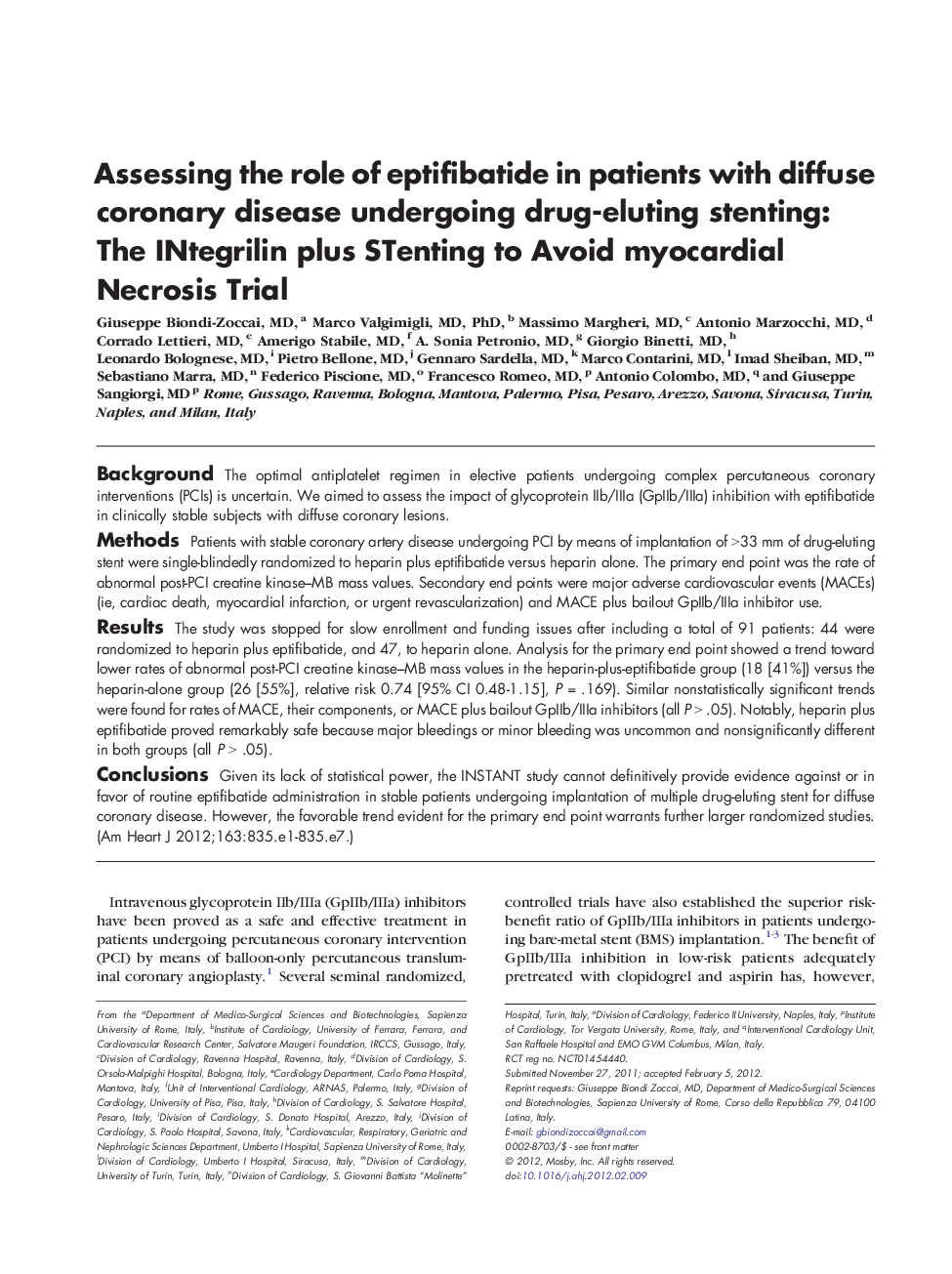| Article ID | Journal | Published Year | Pages | File Type |
|---|---|---|---|---|
| 5927045 | American Heart Journal | 2012 | 7 Pages |
BackgroundThe optimal antiplatelet regimen in elective patients undergoing complex percutaneous coronary interventions (PCIs) is uncertain. We aimed to assess the impact of glycoprotein IIb/IIIa (GpIIb/IIIa) inhibition with eptifibatide in clinically stable subjects with diffuse coronary lesions.MethodsPatients with stable coronary artery disease undergoing PCI by means of implantation of >33 mm of drug-eluting stent were single-blindedly randomized to heparin plus eptifibatide versus heparin alone. The primary end point was the rate of abnormal post-PCI creatine kinase-MB mass values. Secondary end points were major adverse cardiovascular events (MACEs) (ie, cardiac death, myocardial infarction, or urgent revascularization) and MACE plus bailout GpIIb/IIIa inhibitor use.ResultsThe study was stopped for slow enrollment and funding issues after including a total of 91 patients: 44 were randomized to heparin plus eptifibatide, and 47, to heparin alone. Analysis for the primary end point showed a trend toward lower rates of abnormal post-PCI creatine kinase-MB mass values in the heparin-plus-eptifibatide group (18 [41%]) versus the heparin-alone group (26 [55%], relative risk 0.74 [95% CI 0.48-1.15], P = .169). Similar nonstatistically significant trends were found for rates of MACE, their components, or MACE plus bailout GpIIb/IIIa inhibitors (all P > .05). Notably, heparin plus eptifibatide proved remarkably safe because major bleedings or minor bleeding was uncommon and nonsignificantly different in both groups (all P > .05).ConclusionsGiven its lack of statistical power, the INSTANT study cannot definitively provide evidence against or in favor of routine eptifibatide administration in stable patients undergoing implantation of multiple drug-eluting stent for diffuse coronary disease. However, the favorable trend evident for the primary end point warrants further larger randomized studies.
